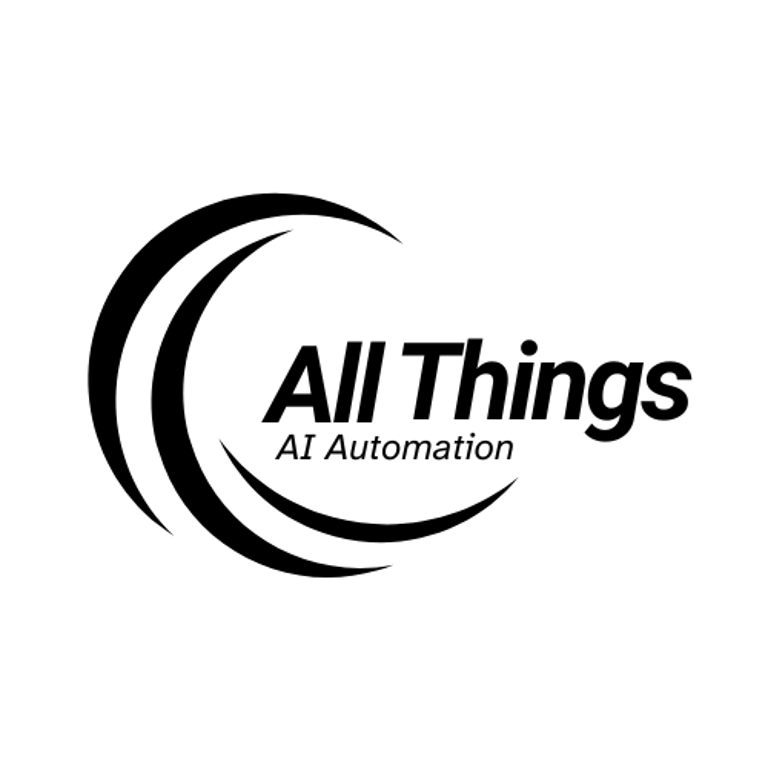Top 10 AI Fears Holding Small Businesses Back—And How to Overcome Them
In this article, we take a look at common concerns or fears that often cause small business owners to hold back from incorporating AI systems into their businesses. This is the first of two parts.
2/6/20257 min read
Top 10 AI Fears Holding Small Businesses Back—And How to Overcome Them! (Pt. 1)
The rapid rise of artificial intelligence (AI) has sparked both excitement and trepidation in the small business community. While AI promises increased efficiency, cost savings, and enhanced customer engagement, it also comes with a host of uncertainties and fears. Many small business owners worry about the cost of implementation, the complexity of AI technology, and the potential for job loss. This article delves into the top 10 AI fears that are holding small businesses back and provides actionable strategies to overcome them, empowering you to harness the power of AI and propel your business forward.
1. “AI is Too Expensive”
Let's face it, the image of AI often conjures up visions of sprawling server farms and Silicon Valley geniuses – not exactly the picture of a small business budget. Many small business owners believe AI is exclusively for large corporations with deep pockets. But that's simply not true anymore. The reality is that a growing number of AI tools are specifically designed with small businesses in mind, offering powerful automation capabilities at surprisingly affordable prices, and some are even free! Think of platforms like Make.com and Zapier for workflow automation, the versatile ChatGPT for content creation and customer interaction, and AI-powered CRMs that streamline your customer relationships. These tools level the playing field, allowing you to automate key processes without breaking the bank.
"The cost of AI has come down dramatically in recent years, making it accessible to even the smallest businesses," says Bernard Marr, a renowned futurist and AI advisor. "There are now many affordable, cloud-based AI solutions that can help small businesses automate tasks, improve customer service, and boost sales."
John used to think AI was too expensive for use in his home repair business. Then he discovered an AI-powered chatbot for under $100 per month. This chatbot became his virtual receptionist, answering frequently asked questions, scheduling appointments, and even following up on quotes. The result? John saw an 18% increase in revenue within six months, all while freeing up his time and handling customer inquiries automatically. That's the power of affordable AI.
So what is one task you perform daily that an AI tool could handle for under $100 a month? Take a moment to consider the possibilities. Even better, do a quick exercise: Think of a current challenge you face in your business. Now, spend a few minutes researching low-cost AI tools that might offer a solution. You might be surprised at what you find! Don't let the myth of the monster budget hold you back from exploring the potential of AI for your small business.
2. "I Don't Understand AI”
One of the biggest hurdles small business owners face when considering AI is simply not understanding how it works. We hear it all the time: "I don't understand how AI works, so I can't use it." But here's the good news: you don't need to understand the intricate algorithms behind AI to benefit from it. Modern AI tools are designed with user-friendliness in mind, much like your smartphone – you use it every day without needing to know the complex engineering inside. You don't need a computer science degree or coding skills to reap the rewards.
Every day I jump in my car and head to work. I have basic understanding of how the vehicle works but that is it. I simply trust that the vehicle will work and get me to where I want to go. Similarly, you don't need to be an AI expert to leverage its power. Many AI platforms offer intuitive interfaces and require minimal training. As Andrew Ng, a leading AI expert and founder of DeepLearning.AI, puts it, "AI is the new electricity." And just like electricity, you don't need to understand the underlying physics to use it to power your business.
Beni was initially terrified by the thought of AI.Like many of us, she assumed it was too complicated. However, after dipping her toes into an AI-powered email marketing tool, something amazing happened. This tool automatically personalized promotions based on customer preferences, and within just three months, her repeat orders jumped by a remarkable 25%. That's the power of user-friendly AI in action.
Now, let's get you started. Imagine you had a tireless assistant working 24/7. What's the first task you'd delegate? Perhaps it's answering customer inquiries, scheduling appointments, or even generating marketing copy. Why not experience the simplicity of AI firsthand? Try a live demo of a simple AI tool, like ChatGPT, and see how easily it can handle tasks like responding to customer inquiries. You might be surprised at just how intuitive and accessible AI has become.
3. “AI Will Replace My Workers”
Another common fear surrounding AI is the worry that it will replace human employees. It's a natural concern – the idea of technology making human roles obsolete. But the reality is far from a dystopian robot takeover. Yes, AI has impacted some industries and some have lost their jobs. But for the most part, AI is designed to enhance jobs, not eliminate them. Think of AI as a powerful assistant, taking over the tedious, repetitive tasks that often bog down your team. This frees up your valuable human capital to focus on what truly matters: creativity, empathy, and strategic thinking – the very qualities that make your business unique and that, frankly, no machine can replicate.
Instead of replacing jobs, AI is reshaping them, allowing employees to focus on higher-value, more engaging work. It's about augmentation, not automation. I like that.
I recently heard of a small law firm that was quite anxious that AI-driven document automation would replace their paralegals. But guess what happened? By automating routine paperwork, the firm saved a staggering five hours per case. This newfound time allowed their paralegals to shift their focus from tedious administrative tasks to building stronger client relationships and developing more effective case strategies. The result? Happier employees, more satisfied clients, and ultimately, a more successful firm.
Ginni Rometty, former CEO of IBM, has stated, "I believe that AI is going to make every job more interesting." It's about empowering your team, not replacing them.
Take a moment to reflect on your own workplace. What tasks do your employees genuinely dislike doing? Identifying these less-than-desirable duties could be the first step in strategically delegating them to AI. By offloading these repetitive tasks, you enable your team to concentrate on the higher-value activities that drive your business forward and make their work more fulfilling. This isn't about replacing people; it's about unleashing their potential.
4. “AI Is Too Risky”
Data privacy and security are paramount, and rightfully so, when considering AI adoption. Many business owners worry that introducing AI might compromise sensitive customer data. It's a valid concern. However, reputable AI solutions are built with strict adherence to data privacy laws, such as GDPR and CCPA. In fact, businesses often have significant control over how AI systems access and process their data. It's not a free-for-all; it's about responsible data handling.
Think of it like online banking: you trust your bank to protect your financial information, and they have robust security measures in place to do so. Similarly, reputable AI providers prioritize data security and offer tools and controls to ensure your data remains protected.
"We need to ensure that AI is used in a way that is responsible and that protects people's privacy" said Brad Smith, President of Microsoft. This sentiment is echoed throughout the industry, driving the development of secure and privacy-focused AI solutions.
What's one area where security is a pressing concern? Perhaps it's customer data, financial records, or proprietary information. A valuable exercise in building your confidence is to thoroughly review the privacy policies of the AI tools you're considering. Look for details on data encryption, access controls, and compliance with relevant regulations. By prioritizing data security from the outset, you can leverage the power of AI without compromising the privacy of your valuable information.
5. "AI Is Too Complicated”
Another frequent concern we hear is that AI seems just too complex. "I don't have time to learn another complicated system," many busy professionals tell us. It's a valid feeling – time is precious, and the thought of mastering a complex new technology can be daunting. But the reality is that many modern AI solutions are designed to be plug-and-play, offering intuitive interfaces that require minimal setup. Think "easy to use" rather than "rocket science."
It's like switching to a new app on your phone. While there might be a slight learning curve, most apps are designed to be user-friendly, allowing you to pick up the basics quickly. The same is true for many AI tools.
Consider the experience of a solo entrepreneur managing an Etsy store. She was initially reluctant to adopt AI for inventory management, fearing it would only complicate her already hectic workflow. However, after trying an AI-powered inventory tracker that automatically updated stock levels and sent low-stock alerts, she had a revelation. Not only did the system not complicate things, but it actually saved her 2-3 hours per week while simultaneously preventing lost sales due to out-of-stock items. That's the power of simple, yet effective, AI.
As Satya Nadella, CEO of Microsoft, has emphasized, "The future of computing is one where technology disappears and lets you focus on what matters most." This vision is driving the development of increasingly user-friendly AI solutions.
If you could automate just one daily task, which one would it be? Think about the tasks that eat up your time and energy, the ones that you wish you could magically make disappear. Often, these are the perfect candidates for AI automation. The best way to dispel the myth of AI complexity is to see it in action. Many AI systems offer free trials or demos, and some can be set up in under five minutes. Take the plunge and experience firsthand just how straightforward AI integration can be. You might be surprised at how quickly you can start reaping the benefits.
The rapid rise of artificial intelligence has left many business owners excited about its possibilities but equally concerned about its potential risks. While AI offers remarkable efficiency, cost savings, and customer engagement, it also comes with uncertainties. What if AI makes mistakes? Will it replace the personal touch in customer service? Is it just another passing trend? These questions are understandable, but the good news is that AI is not as daunting as it seems. With the right approach, it can be a valuable asset rather than a source of worry.
In part 2, we will look at five others common fears that influence business owners in their decision making process about AI systems.


Solutions
Empowering businesses with AI-driven automation tools.
Support
Contact
© 2024. All rights reserved.
